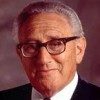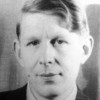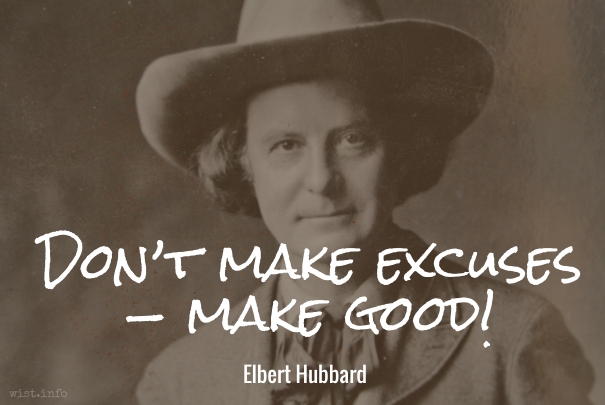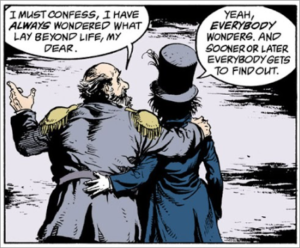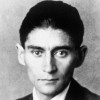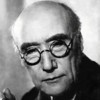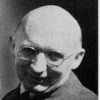Do not worry if you are without a position; worry lest you do not deserve a position. Do not worry if you are not famous; worry lest you do not deserve to be famous.
[不患無位、患所以立、不患莫己知、求爲可知也]
Confucius (c. 551- c. 479 BC) Chinese philosopher, sage, politician [孔夫子 (Kǒng Fūzǐ, K'ung Fu-tzu, K'ung Fu Tse), 孔子 (Kǒngzǐ, Chungni), 孔丘 (Kǒng Qiū, K'ung Ch'iu)]
The Analects [論語, 论语, Lúnyǔ], Book 4, verse 14 (4.14) (6th C. BC – AD 3rd C.) [tr. Leys (1997)]
(Source)
(Source (Chinese)). See also 1.16, 14.30, 15.19. Alternate translations:
A man should say, I am not concerned that I have no place, I am concerned how I may fit myself for one. I am not concerned that I am not known, I seek to be worthy to be known.
[tr. Legge (1861)]
One should not be greatly concerned at not being in office; but rather about the requirements in oneself for such a standing. Neither should one be so much concerned at being unknown; but rather with seeking to become worthy of being known.
[tr. Jennings (1895)]
Be not concerned for want of a position; be concerned how to fit yourself for a position. Be not concerned that you are not known, but seek to do something to deserve a reputation.
[tr. Ku Hung-Ming (1898)]
One should not be concerned at lack of position; but should be concerned about what will fit him to occupy it. One should not be concerned at being unknown; he should seek to be worthy of being known.
[tr. Soothill (1910)]
Not worried at being out of a job, but about being fit for one; not worried about being unknown but about doing something knowable.
[tr. Pound (1933)]
He does not mind not being in office; all he minds about is whether he has qualities that entitle him to office. He does not mind failing to get recognition; he is too busy doing the things that entitle him to recognition.
[tr. Waley (1938)]
Do not worry about not holding high position; worry rather about playing your proper role. Worry not that no one knows of you; seek to be worth knowing.
[tr. Ware (1950)]
Do not worry because you have no official position. Worry about your qualifications. Do not worry because no one appreciates your abilities. Seek to be worthy of appreciation.
[tr. Lau (1979)]
One is not worried about not holding position; one is worried about how one may fit oneself for appointment. One is not worried that nobody knows one; one seeks to become fit to be known.
[tr. Dawson (1993)]
Do not worry about having no office; rather, worry about whether you deserve to stand in that office. Do not worry about nobody knowing you; rather, seek to be worth knowing.
[tr. Huang (1997)]
Do not worry about not being on the position, just worry about my quality on the position. Do not worry about that nobody understand me, just seek I can be understood.
[tr. Cai/Yu (1998), #81]
Do not worry over not having an official position; worry about what it takes to have one. Do not worry that no one acknowledges you; seek to do what will earn you acknowledgment.
[tr. Ames/Rosemont (1998)]
He does not worry that he has no position; he worries about whether he is qualified to hold one. He does not worry that no one recognizes his worth; he seeks to become worthy to be recognized.
[tr. Brooks/Brooks (1998)]
Don't worry if you have no position: worry about making yourself worthy of one. Don't worry if you aren't known and admired: devote yourself to a life that deserves admiration.
[tr. Hinton (1998)]
Do not be concerned that you lack an official position, but rather concern yourself with the means by which you might become established. Do not be concerned that no one has heard of you, but rather strive to become a person worthy of being known.
[tr. Slingerland (2003)]
Don’t worry that you have no position -- worry about how you can qualify for one. Don’t worry that people don’t know you -- look for some reason to become known.
[tr. Watson (2007)]
Do not worry that you have no official position. Worry about tnot having the qualifications to deserve a position. Do not worry that others do not know you. Seek to be worthy of being known.
[tr. Annping Chin (2014)]
You should not worry about not getting an official appointment. You should instead worry about whether you have the capability to take that assignment. You should not worry that people do not know you. You should instead strive for remarkable achievement.
[tr. Li (2020)]
When I was a boy of fourteen, my father was so ignorant I could hardly stand to have the old man around. But when I got to be twenty-one, I was astonished at how much the old man had learned in seven years.
Totalitarianism is never content to rule by external means, namely, through the state and a machinery of violence; thanks to its peculiar ideology and the role assigned to it in this apparatus of coercion, totalitarianism has discovered a means of dominating and terrorizing human beings from within.
Hannah Arendt (1906-1975) German-American philosopher, political theorist
The Origins of Totalitarianism, Part 3, ch. 10 “A Classless Society”, sec. 1 (1951)
(Source)
On with the dance! let joy be unconfined;
No sleep till morn, when Youth and Pleasure meet
To chase the glowing Hours with flying feet.George Gordon, Lord Byron (1788-1824) English poet
Childe Harold’s Pilgrimage, Canto 3, st. 22 (1818)
(Source)
To ignore evil is to become an accomplice to it.
Martin Luther King, Jr. (1929-1968) American clergyman, civil rights leader, social activist, preacher
Where Do We Go from Here: Chaos or Community? (1967)
(Source)
He who sings, prays twice.
[Qui cantat, bis orat.]
Augustine of Hippo (354-430) Christian church father, philosopher, saint [b. Aurelius Augustinus]
(Attributed)
Sometimes cited to Sermon 336, but this text is not found there. Often given as "Qui bene cantat bis orat" (properly, "He who sings well prays twice.")The closest found in Augustine's work (CCL 39, per here) is:
"For he who sings praise, does not only praise, but also praises joyfully; he who sings praise, not only sings, but also loves Him whom he is singing about/to/for. There is a praise-filled public proclamation in the praise of someone who is confessing/acknowledging God, in the song of the lover there is love." [Qui enim cantat laudem, non solum laudat, sed etiam hilariter laudat; qui cantat laudem, non solum cantat, sed et amat eum quem cantat. In laude confitentis est praedicatio, in cantico amantis affectio...]
Alternate: "The one who sings praise, not only praises, but also praises joyfully; the one who sings praise, not only sings, but also loves Him for whom he sings. In the praise by one who confesses the Divine Being, praise actually is a public profession; and in the song of the lover is affection for the Beloved."
INNKEEPER: Was that the truth, Cluracan?
CLURACAN: All of it except the sword-fight with the palace guard, which I threw in to add verisimilitude, excitement, and local color to an otherwise bald and insipid narrative.
Neil Gaiman (b. 1960) British author, screenwriter, fabulist
Sandman, Book 8. World’s End, # 52 “Cluracan’s Tale” (1993-08)
(Source)
The Sting of a Reproach is the Truth of it.
Thomas Fuller (1654-1734) English physician, preacher, aphorist, writer
Gnomologia: Adages and Proverbs, #4769 (1732)
(Source)
The pursuit of perfection, then, is the pursuit of sweetness and light. He who works for sweetness and light, works to make reason and the will of God prevail. He who works for machinery, he who works for hatred, works only for confusion. Culture looks beyond machinery, culture hates hatred; culture has one great passion, the passion for sweetness and light.
Matthew Arnold (1822-1888) English poet and critic
Culture and Anarchy, ch. 1 “Sweetness and Light” (1869)
Full text.
There is not an idea that cannot be expressed in 200 words. But the writer must know precisely what he wants to say. If you have nothing to say and want badly to say it, then all the words in all the dictionaries will not suffice.
Administrivia: Bible Verses in WIST
I’ve made a change in how Bible verses are quoted in WIST. Whereas before I had Bible quotes falling underneath “Other Authors and Sources,” I’ve now designated “Bible” as an “author” in the database, allowing easier grouping and finding of quotations from there. (One could arguably assert various “authors” within the Bible, especially in the New Testament, but I’m not going to take it to that detail; the authorship is associated with the book cited and is subject to whatever scholarship the reader cares to accept.)
I’m also trying to be more diligent about citing the translation in use, since that can have a lot of influence on how the ideas are presented (or even whether folks consider them “valid”). I’m generally not citing source links, as the reader may have their preference. The three I use, for different reasons:
- Bible Gateway (the most robust site out there)
- NetBible (includes some translations not in Bible Gateway, like NRSV, as well as some linguistic resources)
- Olive Tree (includes one of my favorite translations, Today’s English Version)
There are other Holy Books / Scripture out there which I still have lumped under “Other,” mostly because the number of quote I have from them is relatively small. As I see a need, I’ll break them out into their own “author” categories.
“Be careful not to do your ‘acts of righteousness’ before men, to be seen by them. If you do, you will have no reward from your Father in heaven.
“So when you give to the needy, do not announce it with trumpets, as the hypocrites do in the synagogues and on the streets, to be honored by men. I tell you the truth, they have received their reward in full. But when you give to the needy, do not let your left hand know what your right hand is doing, so that your giving may be in secret. Then your Father, who sees what is done in secret, will reward you.
“And when you pray, do not be like the hypocrites, for they love to pray standing in the synagogues and on the street corners to be seen by men. I tell you the truth, they have received their reward in full. But when you pray, go into your room, close the door and pray to your Father, who is unseen. Then your Father, who sees what is done in secret, will reward you.”
The Bible (The New Testament) (AD 1st - 2nd C) Christian sacred scripture
Matthew 6:1-6 (NIV)
(Source)
KJV: "Take heed that ye do not your alms before men, to be seen of them: otherwise ye have no reward of your Father which is in heaven. "Therefore when thou doest thine alms, do not sound a trumpet before thee, as the hypocrites do in the synagogues and in the streets, that they may have glory of men. Verily I say unto you, They have their reward. But when thou doest alms, let not thy left hand know what thy right hand doeth: That thine alms may be in secret: and thy Father which seeth in secret himself shall reward thee openly. "And when thou prayest, thou shalt not be as the hypocrites are: for they love to pray standing in the synagogues and in the corners of the streets, that they may be seen of men. Verily I say unto you, They have their reward. But thou, when thou prayest, enter into thy closet, and when thou hast shut thy door, pray to thy Father which is in secret; and thy Father which seeth in secret shall reward thee openly."
His uncertainty forces the enthusiast to puff up his truths, of which he feels none too sure, and to win proselytes to his side in order that his followers may prove to himself the value and trustworthiness of his own convictions. … Only when convincing someone else does he feel safe from gnawing doubts.
Nothing we use or hear or touch can be expressed in words that equal what is given by the senses.
Hannah Arendt (1906-1975) German-American philosopher, political theorist
The Life of the Mind, Vol. 1 “Thinking,” Introduction (1977)
(Source)
Reprinted in "Thinking -- I" New Yorker (21 Nov 1977)
Whenever there is in any country, uncultivated lands and unemployed poor, it is clear that the laws of property have been so far extended as to violate natural right. The earth is given as a common stock for man to labour & live on. If, for the encouragement of industry we allow it to be appropriated, we must take care that other employment be furnished to those excluded from the appropriation. If we do not the fundamental right to labour the earth returns to the unemployed. It is too soon yet in our country to say that every man who can not find employment but who can find uncultivated land, shall be at liberty to cultivate it, paying a moderate rent. But it is not too soon to provide by every possible means that as few as possible shall be without a little portion of land. The small landholders are the most precious part of a state.
Thomas Jefferson (1743-1826) American political philosopher, polymath, statesman, US President (1801-09)
Letter to James Madison (28 Oct 1785)
(Source)
The greatest evil is not done in those sordid dens of evil that Dickens loved to paint … but is conceived and ordered (moved, seconded, carried and minuted) in clear, carpeted, warmed, well-lighted offices, by quiet men with white collars and cut fingernails and smooth-shaven cheeks who do not need to raise their voices.
It seems to me what is called for is an exquisite balance between two conflicting needs: the most skeptical scrutiny of all hypotheses that are served up to us and at the same time a great openness to new ideas. Obviously those two modes of thought are in some tension. But if you are able to exercise only one of these modes, whichever one it is, you’re in deep trouble.
If you are only skeptical, then no new ideas make it through to you. You never learn anything new. You become a crotchety old person convinced that nonsense is ruling the world. (There is, of course, much data to support you.) But every now and then, maybe once in a hundred cases, a new idea turns out to be on the mark, valid and wonderful. If you are too much in the habit of being skeptical about everything, you are going to miss or resent it, and either way you will be standing in the way of understanding and progress.
On the other hand, if you are open to the point of gullibility and have not an ounce of skeptical sense in you, then you cannot distinguish useful ideas from the worthless ones. If all ideas have equal validity then you are lost, because then, it seems to me, no ideas have any validity at all.
Carl Sagan (1934-1996) American scientist and writer
“The Burden of Skepticism,” Pasadena lecture (1987)
(Source)
Reprinted in The Skeptical Inquirer (Fall 1987).
Failure: A man who has blundered but is not able to cash in on the experience.
Elbert Hubbard (1856-1915) American writer, businessman, philosopher
The Roycroft Dictionary (1914)
(Source)
So give to the poor; I’m begging you, I’m warning you, I’m commanding you, I’m ordering you.
Augustine of Hippo (354-430) Christian church father, philosopher, saint [b. Aurelius Augustinus]
Sermon 61, para. 13
In some sources / arrangements, cited as Sermon 11. Full text.Alt trans.:
- "Give then to the poor; I beg, I advise, I charge, I command you. "
- "Therefore, give to the poor. I beg you, I admonish you, I charge you, I command you to give." [tr. Schopp, Deferrari (1951)]
NORTON I: I must confess, I have always wondered what lay beyond life, my dear.
DEATH: Yeah, everybody wonders. And sooner or later everybody gets to find out.
Neil Gaiman (b. 1960) British author, screenwriter, fabulist
Sandman, Book 6. Fables and Reflections, # 31 “Three Septembers and a January” (1991-10)
(Source)
Man cannot live without a permanent trust in something indestructible in himself, though both the indestructible element and the trust may remain permanently hidden from him. One of the ways in which this hiddenness can express itself is through faith in a personal god.
[Der Mensch kann nicht leben ohne ein dauerndes Vertrauen zu etwas Unzerstörbarem in sich, wobei sowohl das Unzerstörbare als auch das Vertrauen ihm dauernd verborgen bleiben können. Eine der Ausdrucksmöglichkeiten dieses Verborgen-Bleibens ist der Glaube an einen persönlichen Gott.]
Alt. trans.:
- “Man cannot live without an enduring faith in something indestructible within him.” [In Max Brod, introduction to Gustav Janouch, Conversations with Kafka (1953) [tr. Rees]]
- “Man cannot live long without a steady faith in something indestructible within him, though both faith and the indestructible thing may remain permanently concealed from him.”
Franz Kafka (1883-1924) Czech-Austrian Jewish writer
Notebook, Aphorism #50 [tr. Kaiser and Wilkins]
Alt. trans.:
- "Man cannot live without an enduring faith in something indestructible within him." [In Max Brod, introduction to Gustav Janouch, Conversations with Kafka (1953) [tr. Rees]]
- "Man cannot live long without a steady faith in something indestructible within him, though both faith and the indestructible thing may remain permanently concealed from him."
I would appreciate it if they would call a halt on all their devoted efforts to find a way to abolish war or eliminate disease or run trains with atoms or extend the span of human life to a couple of centuries, and everybody concentrate for a while on how to wake me up in the morning without my resenting it. It may be that a bevy of beautiful maidens in pure silk yellow very sheer gowns, barefooted, singing Oh, What a Beautiful Morning and scattering rose petals over me would do the trick, but I’d have to try it.
Poverty must have many satisfactions, else there would not be so many poor people.
What is the course of the life
Of mortal men on the earth?—
Most men eddy about
Here and there—eat and drink,
Chatter and love and hate,
Gather and squander, are raised
Aloft, are hurl’d in the dust,
Striving blindly, achieving
Nothing; and, then they die—
Perish; and no one asks
Who or what they have been,
More than he asks what waves
In the moonlit solitudes mild
Of the midmost Ocean, have swell’d,
Foam’d for a moment, and gone.
You accept certain unlovely things about yourself and manage to live with them. The atonement for such an acceptance is that you make allowances for others — that you cleanse yourself of the sin of self-righteousness.
In every age of transition men are never so firmly bound to one way as when they are about to abandon it, so that fanaticism and intolerance reach their most intense forms just before tolerance and mutual acceptance come to be the natural order of things.
Without being forgiven, released from the consequences of what we have done, our capacity to act would, as it were, be confined to one single deed from which we could never recover; we would remain the victims of its consequences forever, not unlike the sorcerer’s apprentice who lacks the magic formula to break the spell.




